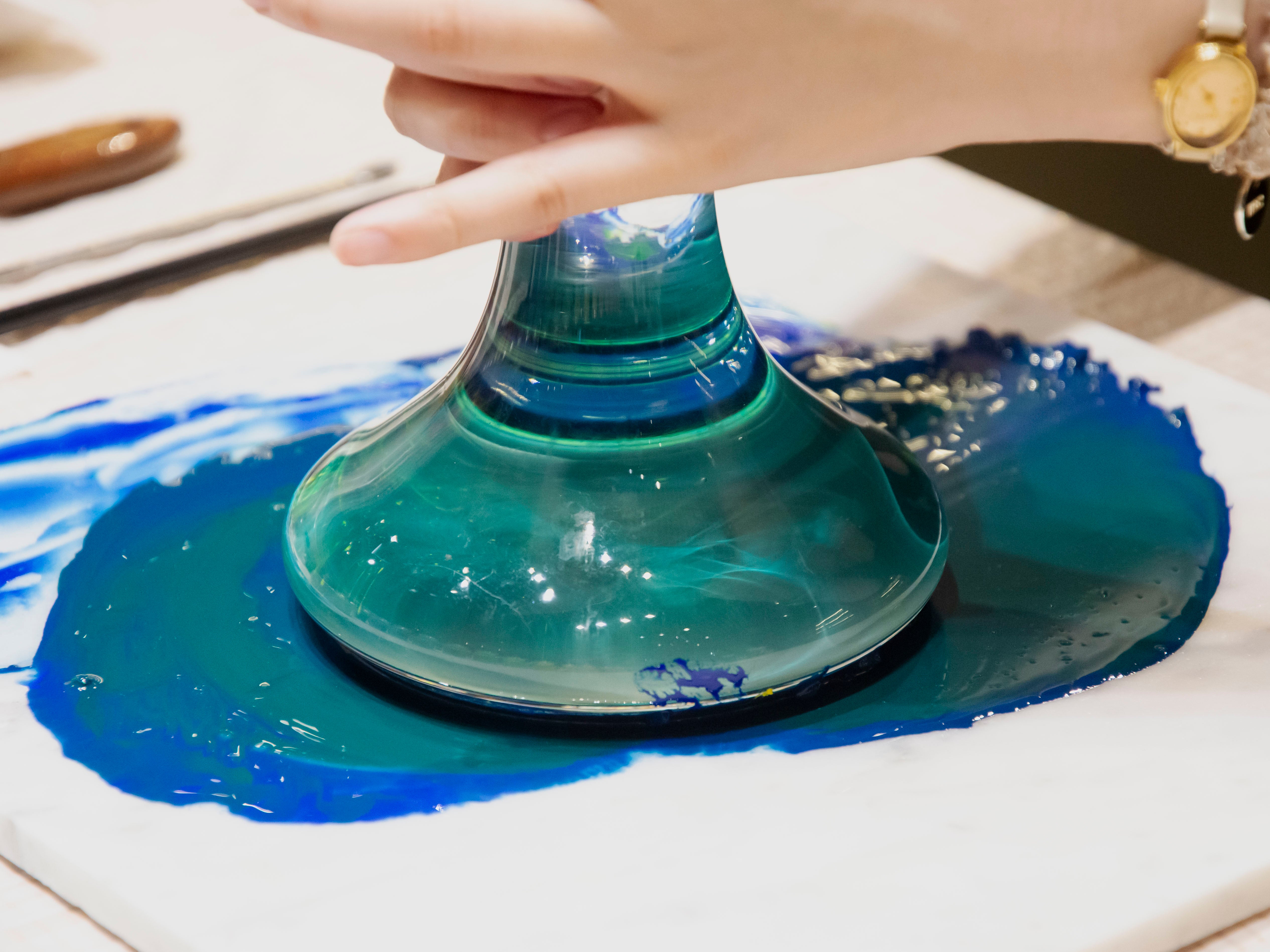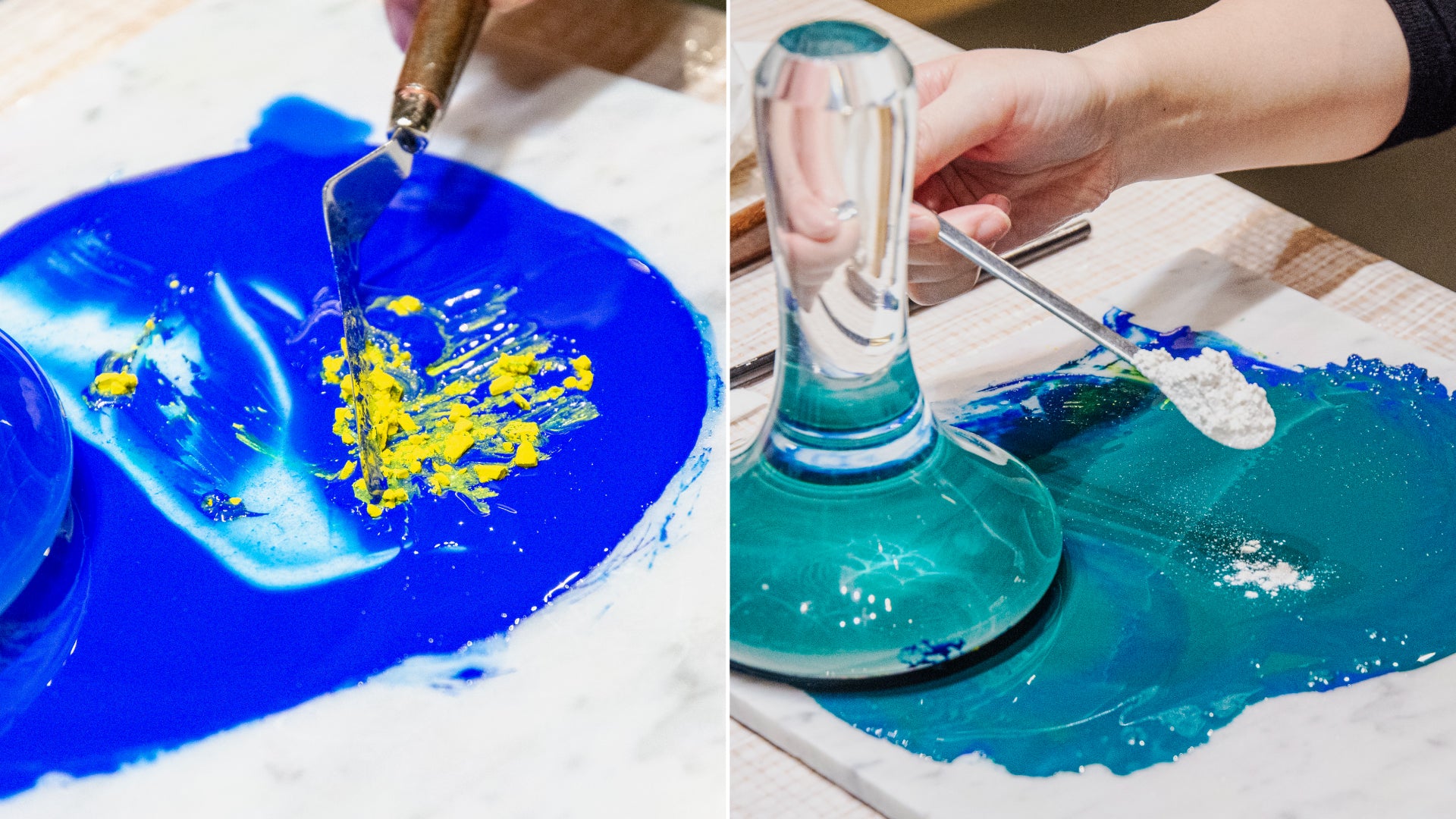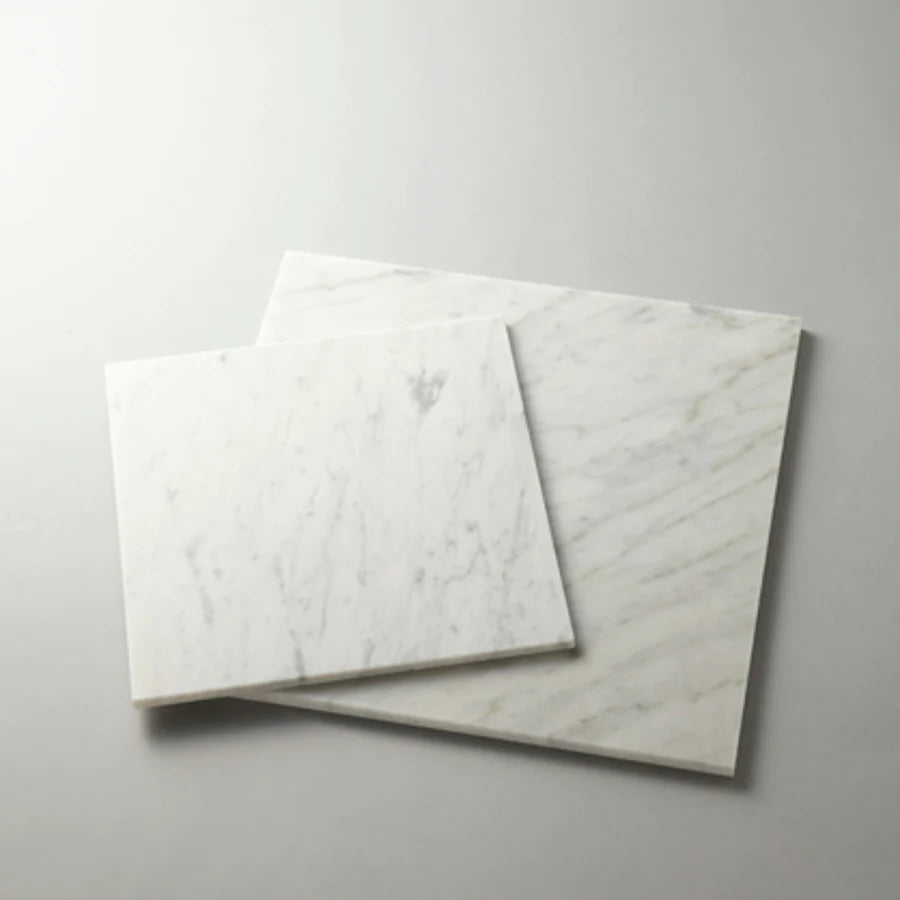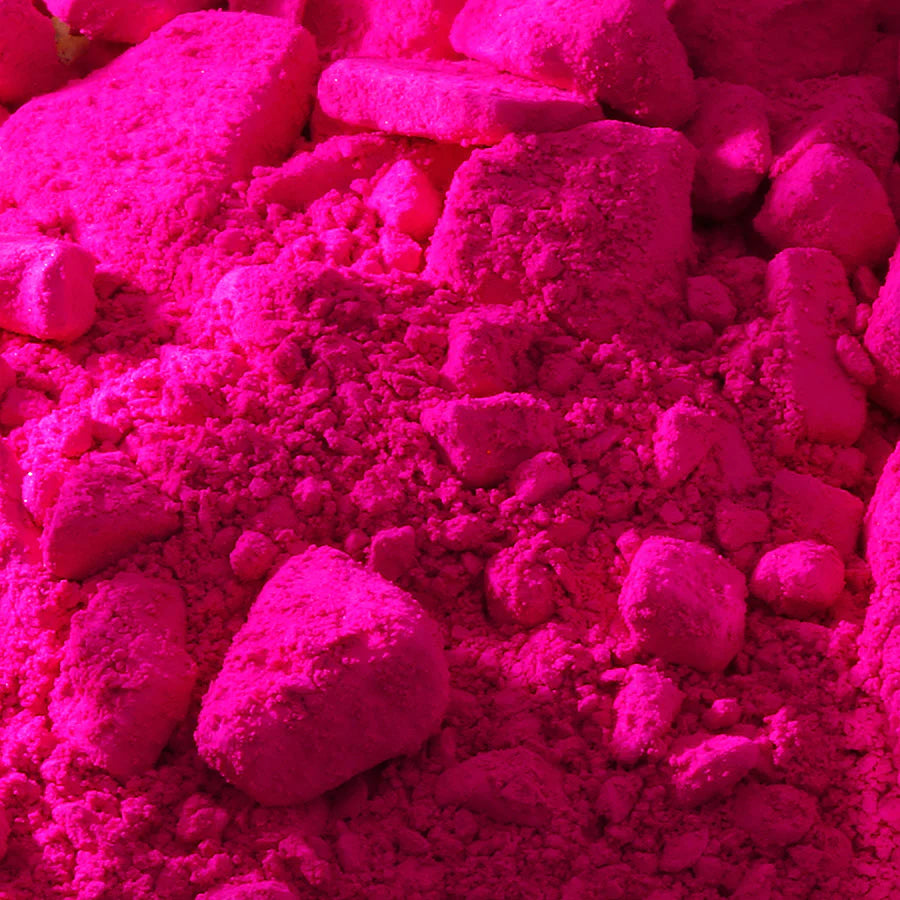PIGMENT TOKYO has been pursuing various projects that deepen understanding of art materials, art techniques and colors from different cultural and historical perspectives.
As one of the projects, we regularly offer three kinds of introductory workshops which are “Make Your Own Watercolors” “Introduction to Mineral Pigments” and “Introduction to Metal Leaf”.
Although many people are familiar with watercolors regardless of their art experiences, there are not many opportunities to learn how they are made and what they are made from.
“Make Your Own Watercolors” is an introductory workshop that offers two learning experiences: the first part is a lecture about the characteristics and origins of the materials and the second half is about making color materials with special tools.
This workshop is a great opportunity to discover the mysteries of paints we always use and to deepen your knowledge not only in looking at and painting artworks but also in a more fundamental way.
In this article, you will find more details about this workshop.
Make Your Own Watercolors (90 minutes)
Dates: Twice a month on Sundays
*The frequency and schedule may vary. Please check the reservation page for specific dates.
Time: 14:00-15:30
Venue: PIGMENT TOKYO
Fee: ¥7,700 (tax and materials included)
Recommended Age: 5 years old and up
Reservation: WORKSHOP–Make Your Own Watercolors
What to Bring: None
*Aprons and rubber gloves will be provided, however, wearing clothes that are allowed to get dirty is recommended.
(Apron: free size for adults / can also be used for children by adjusting the length of the string)
<Ticket Options (Please select if necessary)>
■Attendance by a parent or guardian (1 person) : Free of charge
One additional chair will be provided.
*Please note that there is a limit to the number of chairs available.
*One parent/guardian may sit with one student per class.
*Materials are not included ( assisting your child is welcomed).
*This workshop is only available in Japanese, however, non-Japanese speaking participants will receive handouts with English translations of the lecture and the instructions.
*The former name of this workshop is called "Creating Original Paints." The title has been changed to "Make Your Own Watercolors" from January 2024.
Needless to say, paint is one of the essential materials for color expression in the artwork.
Its ingredients are very simple, all you need to do is to mix color powders called pigments with a binder to affix it to a substrate. In this workshop, participants will make their own watercolor paints by following the classic European recipe. After making paints by mixing various colors of pigments, participants can take them home in a special case so that they can use them anytime in the future.
All people are welcome to join this workshop regardless of age or art experiences, including those who want to experience the world of art or want to try watercolor painting, and children who love to draw and paint.
This introductory workshop is open to everyone, including artists who want to deepen their knowledge of art materials and other professions from different art fields.
PIGMENT TOKYO's art materials experts will give an easy-to-understand lecture on the origins of colorants and materials while retracing the history of paints.
Now, take a look at what we do in the workshop.
*Please note that the schedule of the workshop listed below may vary depending on the situation.
◾️Lecture 14:00-14:15(approx.15 minutes)

The lecture will be focusing on how and when people began using paint, and what materials have been used to make paints over the time.
The world history of pigments that PIGMENT TOKYO presents also includes well-known and familiar topics such as the stones that have been used to make pigments from ancient times to modern times, the artificial pigments developed with the latest technology and the many colors still used by artists today.
Although these topics may seem complicated, they will be presented in an easy-to-understand manner even for those who are not familiar with art and art materials.
◾️How to Make Watercolors/Demonstration 14:15-14:30(approx.15 minutes)
Once participants have a better understanding of pigments, our instructor will demonstrate how to make paints.
・How to Make Watercolors
The first step is a demonstration of how to make basic paints.
Participants will first make a single color of paint.
The workshop offers 20 colors of Suihi pigments, which can be used to make paints of any color you like.
Suihi pigments are tinted white pigments made from shells, mainly Gofun (oyster shell). They are called Suihi (sui=water, hi=drying) pigments because they are refined with water and then dried.
They have excellent pigmentation and their fine particles make it easy to mix colors, thus, they are suitable for making paints.

This workshop will teach the participants on how to use tools and the key points of making paints in the classic Western style.
The materials are pigments, gum arabic and honey, and these are kneaded with a muller (kneading stick) on a marble slab.
First, spray the marble slab with water to moisten it, then put your favorite color of Suihi pigment and the same amount of gum arabic, then add 2 to 3 drops of honey to the mixture.

After the pigment turns to a wet color by mixing ingredients with a palette knife, it's time to use a muller.
To start kneading with a muller, draw a small figure of 8. From there, gradually increase the arcs of the figure 8.
Even though the same materials are used, you can reach the “better paint” as you knead more and more. The importance of creating "better paints" is that they have better smoothness, glossiness, freshness and saturated colors that are unique to watercolors.
・Make Your Original Colors by Mixing Your Favorite Pigments

The next step is making original colors.
Easy to mix Suihi pigments can make unlimited colors by mixing your favorite colors or combining pigments according to the color you want to create.
There are "strong" and "weak" colors, and they have different coloring power.
Strong colors such as blue and red are so influential so adding a lot of them can change the whole shade at once. Therefore, it is also important to add strong colors little by little while keeping an eye on how the color is changing.
Although there may be many things you may not be familiar with at first, such as how to use the tools, the amount of water and binder and how to mix colors, our instructors and staff will be there all time to advise and assist. So feel free to join us without worrying too much!

In addition to Suihi pigments, two other types of white pigments are available as options.
You can also mix mica-based effect pigments to create transparent, shimmering pearl-colored paints or soft pastel colors with matte titanium white.
During the demonstration, the participants can also imagine what colors they would like to make.
◾️Making Watercolor Paints 14:30-15:30(approx. 60min.)

Finally, it is time to make paints.
First, pick that one and only color that captures your eye from the vivid Suihi pigments lined up on the table. In this workshop, participants can make as many paints as they like within the time limit.
The average number of colors is two or three, but it is also fine to concentrate on making just one color.
Encountering a variety of colors will be an exciting experience.
Moreover, there will be three different types of mullers in the workshop.
When you make a new color, we will change the marble board, muller and painting knife, so you can use all three depending on the number of colors you want to make.
One muller is made of glass and the other two are made of marble stone. The size and design of those are all different and the benefits of the larger and smaller mullers vary depending on the person using them and the pigments.
Different types of mullers
Image left: ZECHI Muller (large)
Image center/right: Muller made of stone (*Not for sale)
For young participants, we recommend that their parents or guardians assist them during the workshop.
We also offer a "+ Parent / guardian seat ticket" as an option for those who would like to be there to help their children out, therefore, please pick the ticket that best suits your needs.
*Due to the limited space, "+ Parent / guardian seat tickets" will be closed when the number of seats is reached.
*We ask visitors without reservations for attendance or other ticket options to refrain from assisting or watching in the workshop space.
*If you have any questions or concerns, feel free to contact us by email.

To get closer to the ideal color, try several tests on bamboo washi paper (for watercolor painting).

Although the freshly made paints are soft and fluid, they will solidify when the lids are opened and let them dry. Watercolors will still be water-soluble even when solidified and handmade paints can be stored for a long time at room temperature.You can revive the solidified paints with a wet brush and the paints can be used with other color materials that you already have as well.
We hope all participants will enjoy their art life even after the workshop as we hope this workshop could be a great opportunity to bring you new inspiration!
PIGMENT TOKYO WORKSHOPS

Schedule:
Make Your Own Watercolors (twice a month on Sundays)
Introduction to Mineral Pigments (once a month on Sundays)
Introduction to Metal Leaf (once a month on Sundays)
Workshop - PIGMENT TOKYO
*The number of times and days of the week listed above may vary depending on the situation. Please check the reservation page of each workshop for further details.
Translated by Atsumi Okano
PIGMENT TOKYO Art Materials Expert

![Workshop [Introduction] Making watercolor paint](http://pigment.tokyo/cdn/shop/articles/MV-watercolor-workshop.jpg?v=1762929927&width=1100)









